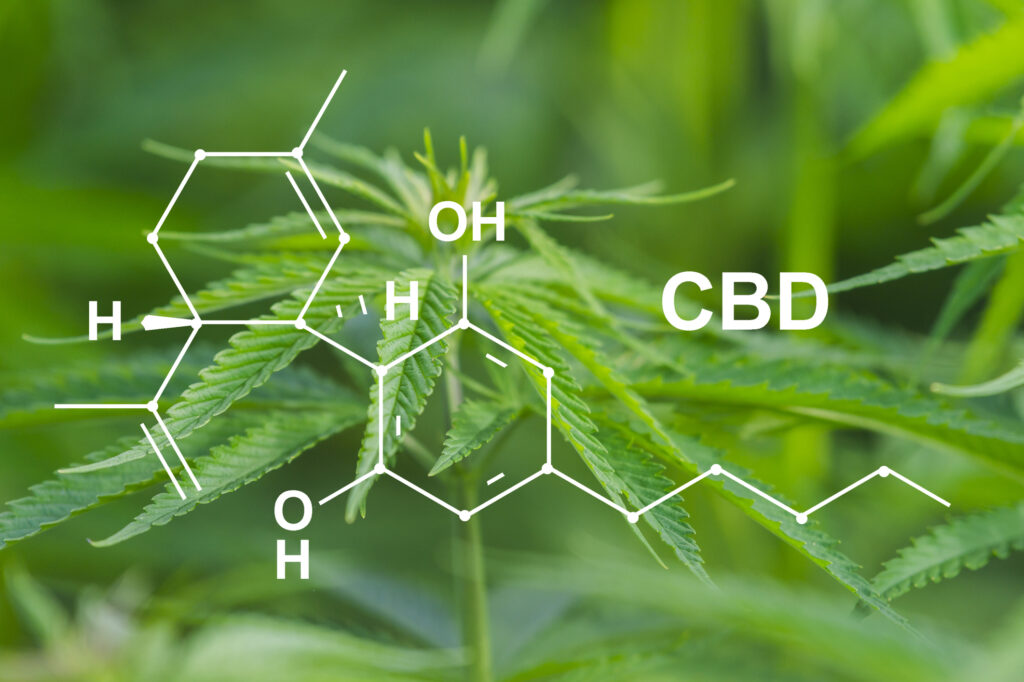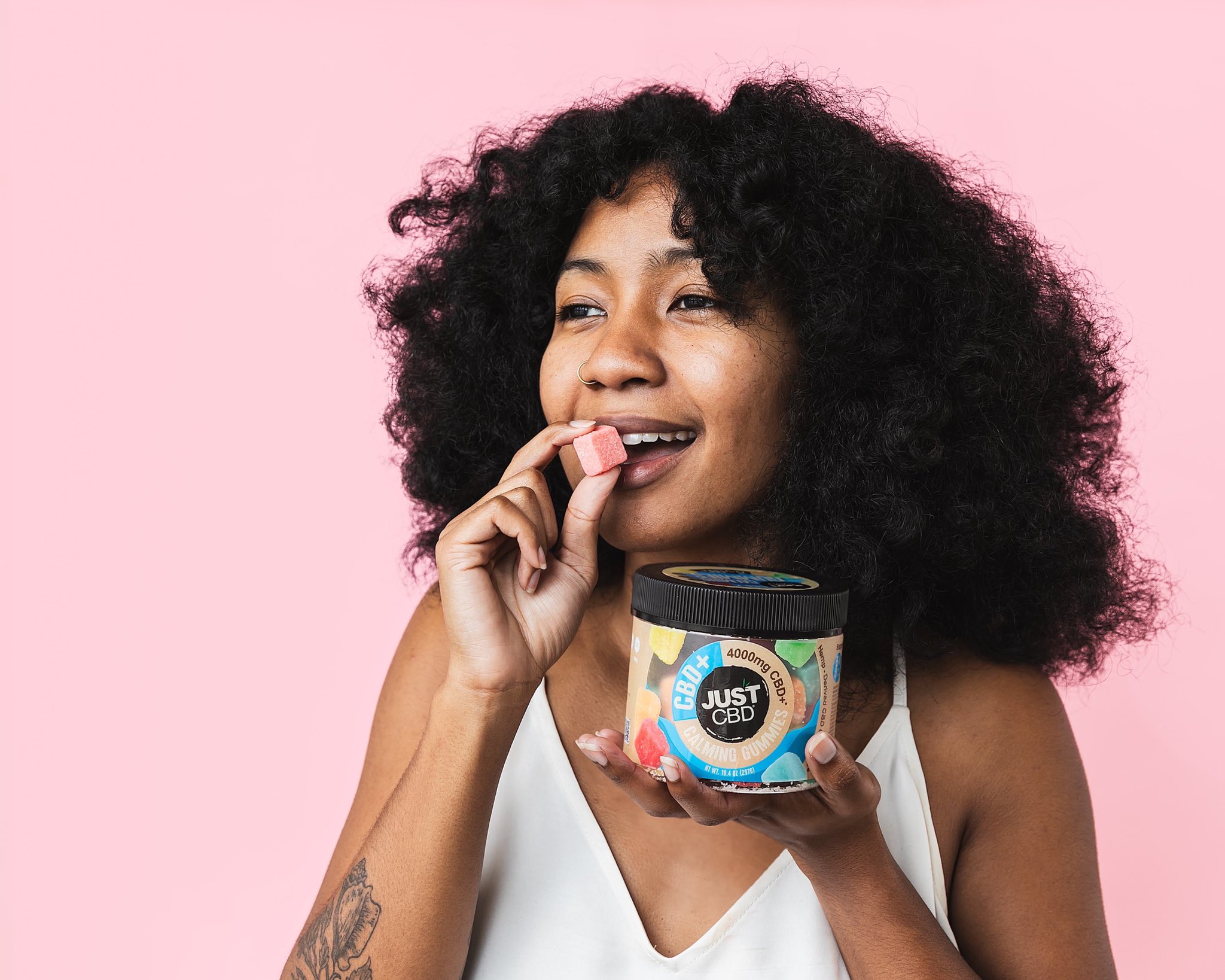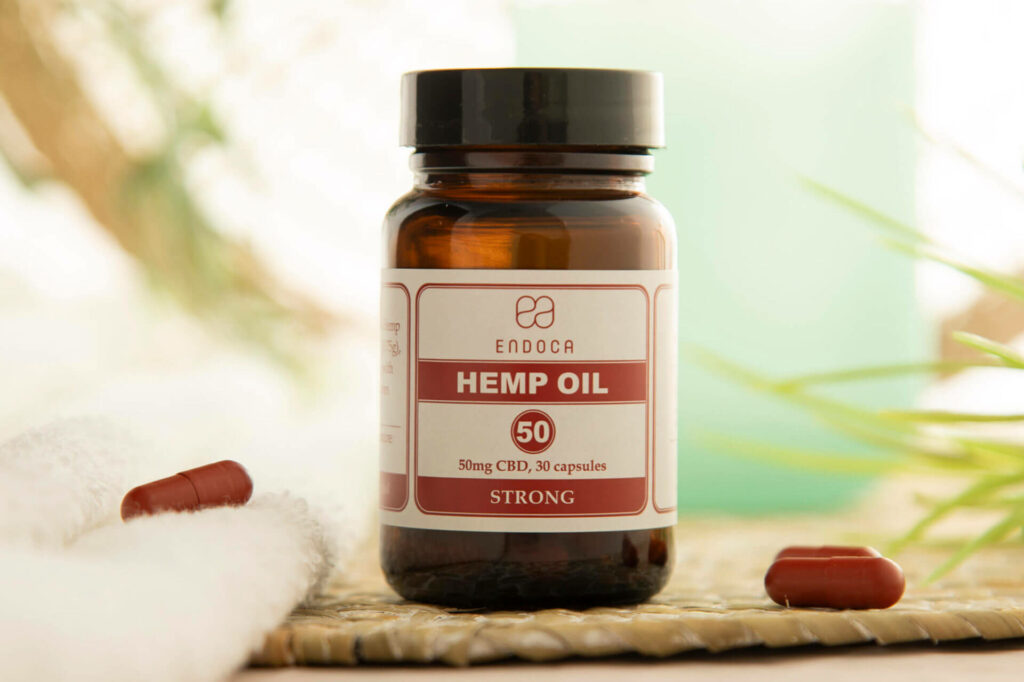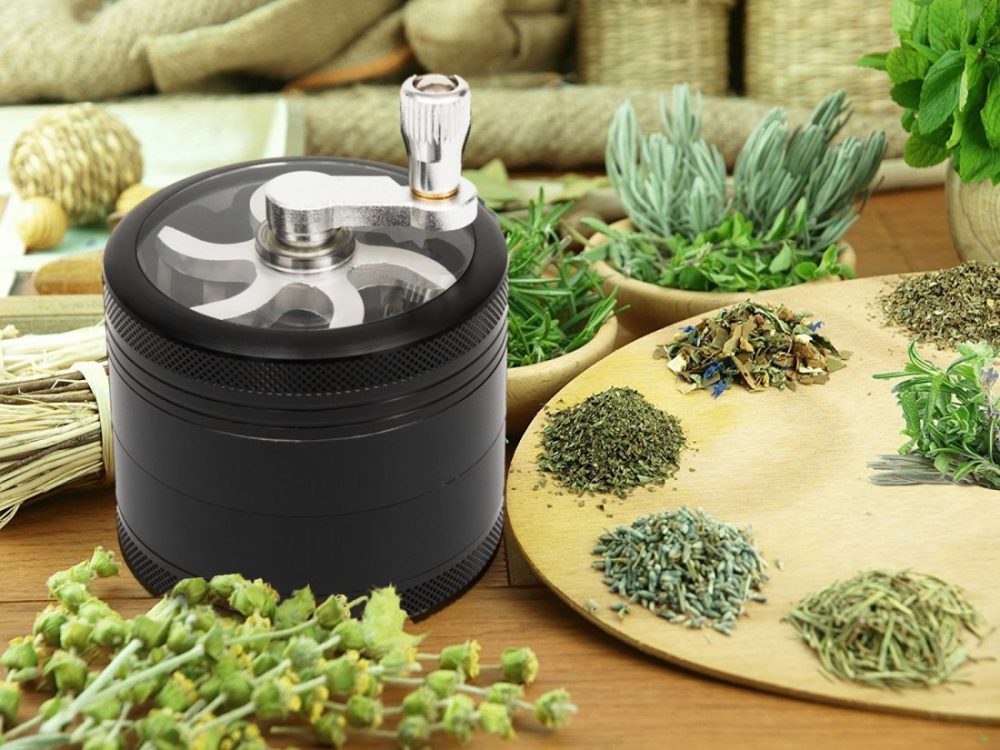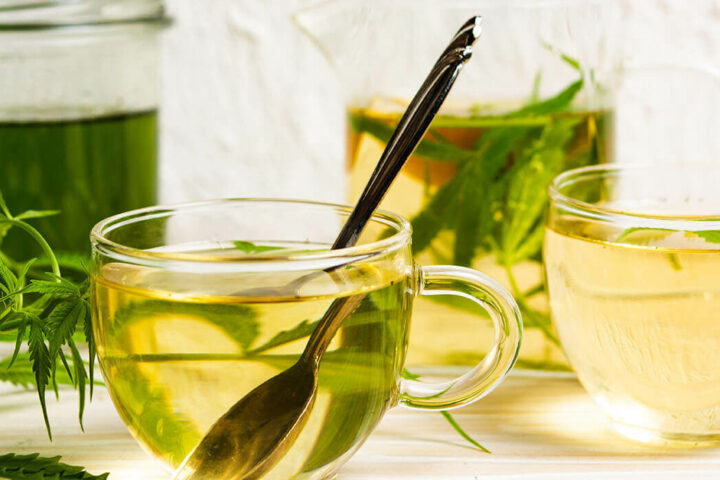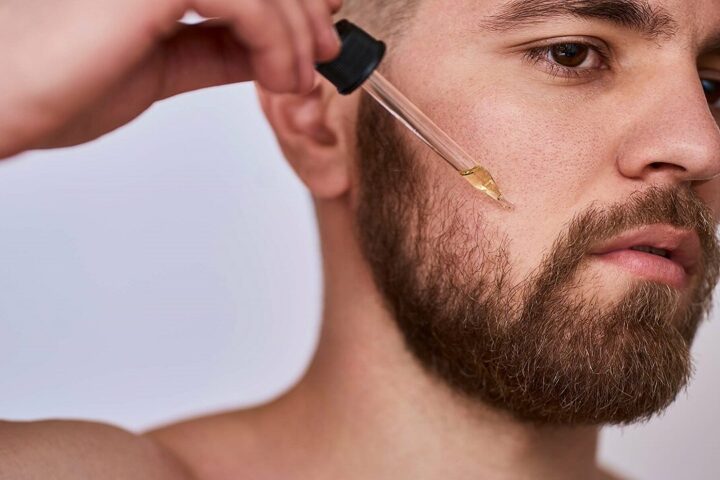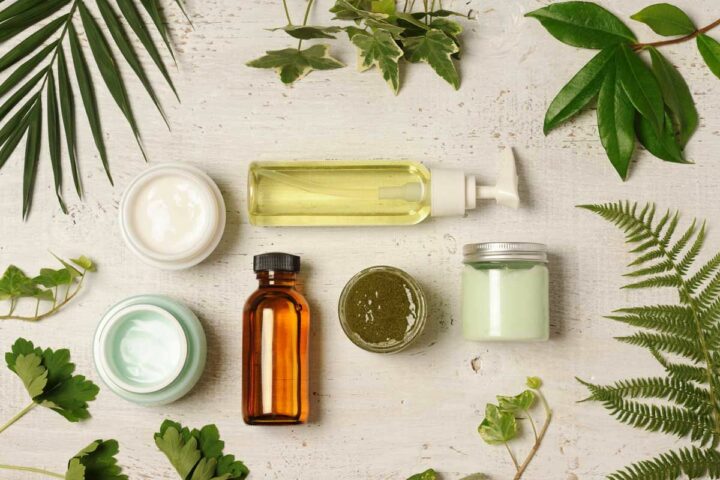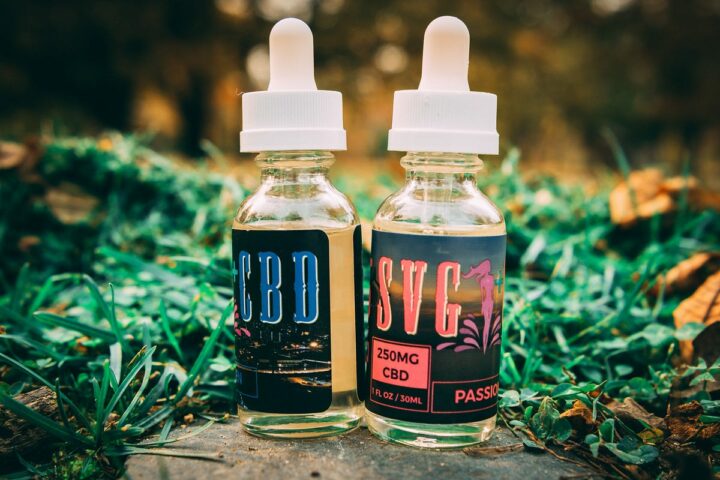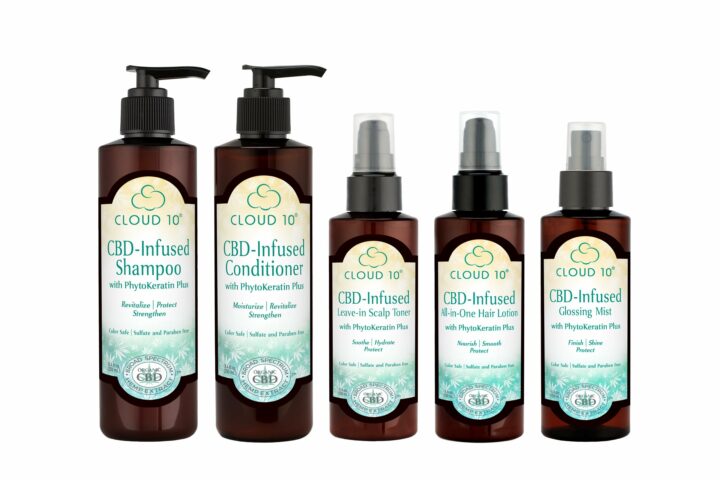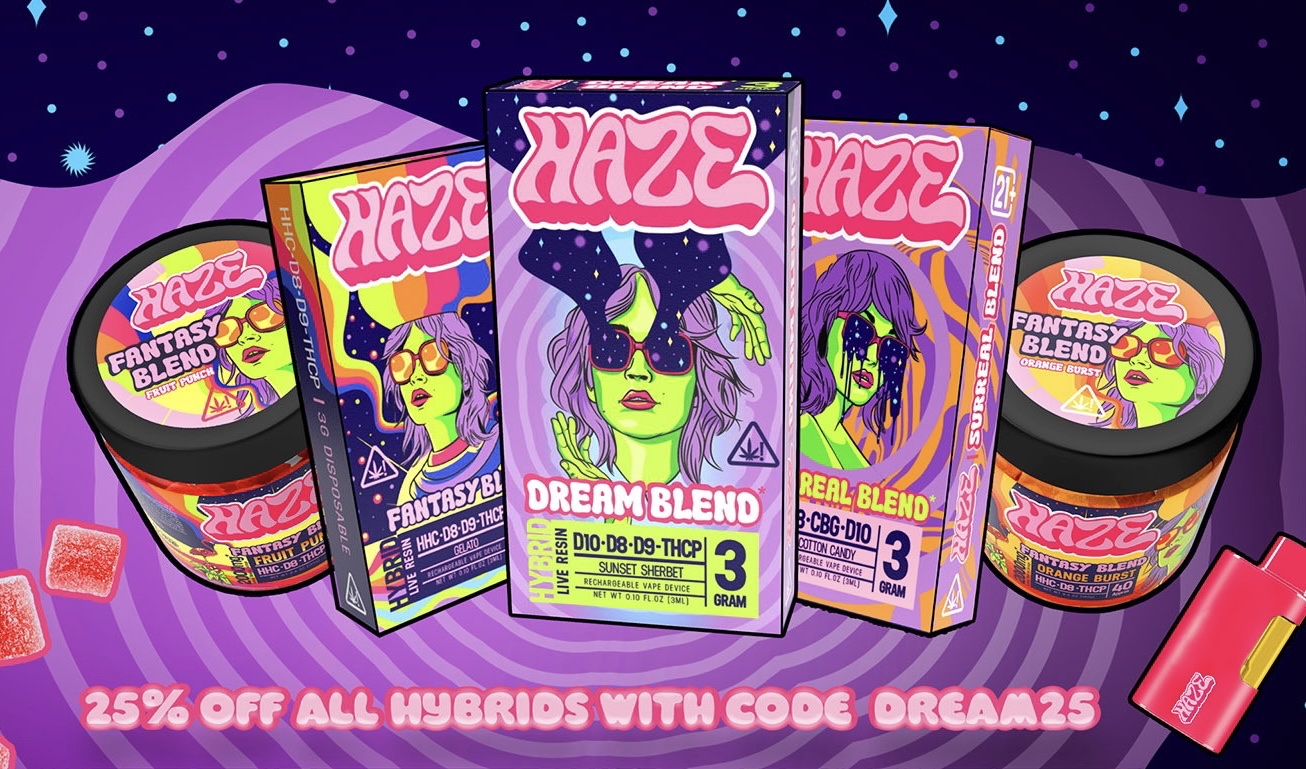Why So CBD
What is Why So CBD
“Why So CBD” is a phrase commonly used in the CBD industry to highlight the versatility and benefits of CBD products. CBD, or cannabidiol, is a naturally occurring compound found in the cannabis plant. Unlike THC, another well-known compound found in cannabis, CBD is non-psychoactive and does not produce a “high” sensation.
“Why So CBD” is often used to emphasize the numerous potential benefits of CBD products, including:
- Pain relief: CBD may help alleviate chronic pain by reducing inflammation and interacting with the body’s endocannabinoid system.
- Anxiety and depression: CBD may help reduce symptoms of anxiety and depression by interacting with serotonin receptors in the brain.
- Sleep: CBD may promote better sleep by reducing anxiety and helping to regulate the sleep-wake cycle.
- Skin health: CBD may help reduce inflammation and irritation in the skin, making it a popular ingredient in skincare products.
- Neuroprotective properties: CBD may have neuroprotective properties, which means it may help protect the brain from damage and degeneration.
- Addiction treatment: CBD may help reduce the symptoms of withdrawal in people with substance abuse disorders.
- Epilepsy: CBD has been approved by the FDA as a treatment for certain types of epilepsy, specifically for two rare forms of epilepsy, Lennox-Gastaut syndrome and Dravet syndrome.
“Why So CBD” also highlights the versatility of CBD products, which can come in many forms such as oils, capsules, edibles, topicals, and vape liquids. This allows consumers to choose the best delivery method that fits their needs and preferences.
In conclusion,
“Why So CBD” is a phrase used to emphasize the numerous potential benefits of CBD products, as well as their versatility and different delivery methods. While more research is needed to fully understand the benefits and potential risks of CBD, many people have reported positive effects from using CBD products. As with any supplement or medication, it is important to consult with a healthcare professional before using CBD products.
How to use Why So CBD
“Why So CBD” is a popular catchphrase used in the CBD industry to highlight the numerous benefits and versatility of CBD products. CBD, or cannabidiol, is a non-psychoactive compound found in the cannabis plant that may have potential therapeutic benefits. Here are some tips on how to use “Why So CBD” products:
Determine your ideal dosage:
The optimal dosage of CBD may vary from person to person, depending on factors such as body weight, the severity of symptoms, and individual tolerance levels. it is recommended to start with a low dosage and gradually increase until you achieve the desired effect. Most CBD products come with dosage guidelines on the label or packaging, but it is always best to consult with a healthcare professional before using any CBD product.
Choose the right delivery method:
CBD products come in many different forms, including oils, capsules, edibles, topicals, and vape liquids. The best delivery method for you depends on your personal preferences and the specific symptom or condition you are treating. For example, CBD oils and tinctures are fast-acting and easy to use, making them a popular choice for people who want quick relief from anxiety or pain. Topical creams and lotions are ideal for targeting localized pain or inflammation, while edibles such as gummies or capsules may be more convenient for people who prefer a discreet and easy-to-dose method.
Follow the product instructions:
It is important to follow the instructions on the label or packaging of your CBD product carefully. This includes the recommended dosage, delivery method, and any precautions or contraindications. Some CBD products may have additional ingredients or flavors that could affect their effectiveness or safety, so it is important to read the label carefully before using.
Be patient:
CBD products may take some time to take effect, so it is important to be patient and consistent with your usage. It may take several weeks of regular use to experience the full benefits of CBD, especially if you are using it to treat a chronic condition or illness.
Monitor your symptoms:
Keep track of your symptoms and how they are affected by your CBD usage. This will help you determine if the dosage or delivery method needs to be adjusted, and can also provide valuable information for healthcare professionals if you are seeking medical advice or treatment.
In conclusion,
using “Why So CBD” products involves determining your optimal dosage, choosing the right delivery method, following product instructions, being patient, and monitoring your symptoms. As with any supplement or medication, it is important to consult with a healthcare professional before using any CBD product, especially if you are pregnant, nursing, or have a pre-existing medical condition.
Why So CBD Dosing
Determining the right dosage for CBD products can be challenging, as there is no universal standard for CBD dosing. The optimal dosage may vary depending on factors such as body weight, the severity of symptoms, and individual tolerance levels. Here are some tips to help you determine the right dose of Why So CBD products:
Start low and go slow:
It is recommended to start with a low dosage and gradually increase until you achieve the desired effect. This can help you avoid any potential side effects and allow your body to adjust to the CBD. A good starting point for most people is 10-20mg of CBD per day, divided into two or three doses.
Consult with a healthcare professional:
If you are unsure about the right dosage for your needs, it is always best to consult with a healthcare professional. They can help you determine the right dosage based on your individual needs and medical history.
Consider your body weight:
CBD dosage may be influenced by your body weight. As a general rule, people who weigh more may require higher doses of CBD to achieve the same effects as someone who weighs less.
Evaluate your tolerance level:
If you are new to using CBD, it is important to evaluate your tolerance level. Some people may be more sensitive to the effects of CBD than others, and may need to start with a lower dose.
Be consistent:
Once you have determined the right dosage for you, it is important to be consistent with your usage. Take the same dosage at the same time each day, and monitor your symptoms to see how they are affected.
Adjust as needed:
If you are not experiencing the desired effect, you may need to adjust the dosage. Increase the dosage gradually until you achieve the desired effect, or decrease the dosage if you experience any side effects.
In conclusion,
determining the right dosage for Why So CBD products involves starting low and going slow, consulting with a healthcare professional, considering your body weight and tolerance level, being consistent, and adjusting the dosage as needed. It is important to remember that CBD dosage may vary depending on individual needs and medical history, and that it is always best to consult with a healthcare professional before using any CBD product.
Benefits of Why So CBD
CBD, or cannabidiol, is a natural compound found in the cannabis plant. Why So CBD is a line of CBD products that are designed to provide various benefits to users. Here are some of the benefits that Why So CBD products may provide:
Pain relief:
One of the most well-known benefits of CBD is its ability to reduce pain. Why So CBD products may help to reduce chronic pain, inflammation, and stiffness, making them a popular choice for people suffering from conditions such as arthritis and multiple sclerosis.
Stress and anxiety relief:
CBD has been shown to have calming properties that may help to reduce stress and anxiety. Why So CBD products may help to promote relaxation, reduce nervousness and anxiety, and improve overall mood.
Better sleep:
CBD has been shown to help improve sleep quality and reduce sleep disturbances. Why So CBD products may help to promote better sleep by reducing anxiety and promoting relaxation.
Skin health:
CBD has anti-inflammatory and antioxidant properties that may help to improve the health of the skin. Why So CBD products may help to reduce inflammation, redness, and other skin irritations, and may also help to protect the skin from damage caused by free radicals.
Neuroprotection:
CBD has been shown to have neuroprotective properties, which means it may help to protect the brain and nervous system from damage caused by various conditions. Why So CBD products may help to improve cognitive function and reduce the risk of neurodegenerative diseases such as Alzheimer’s and Parkinson’s.
Addiction and withdrawal:
CBD has been shown to have potential in reducing addiction and withdrawal symptoms. Why So CBD products may help people struggling with addiction by reducing cravings and withdrawal symptoms.
Digestive health:
CBD may help to regulate the digestive system and reduce inflammation in the gut. Why So CBD products may help to improve digestive health and reduce symptoms such as bloating, diarrhea, and constipation.
In conclusion,
Why So CBD products may provide various benefits to users, including pain relief, stress and anxiety relief, better sleep, improved skin health, neuroprotection, addiction and withdrawal relief, and digestive health. However, it is important to note that the effects of CBD may vary depending on individual needs and medical history, and it is always best to consult with a healthcare professional before using any CBD product.
Legality of CBD in the UK
In the UK, the legality of CBD products depends on their source and how they are marketed. Here is a comprehensive guide on the legality of CBD in the UK:
CBD derived from industrial hemp:
CBD products derived from industrial hemp that contains less than 0.2% THC (the psychoactive compound in cannabis) are legal in the UK. Industrial hemp is a strain of the cannabis plant that has been specifically bred for industrial purposes, such as producing textiles and paper.
CBD derived from cannabis:
CBD products derived from cannabis plants that contain more than 0.2% THC are illegal in the UK, unless they are prescribed by a doctor for medical use. Cannabis-derived CBD products are classified as a controlled substance under the Misuse of Drugs Act 1971.
Marketing of CBD products:
The marketing of CBD products in the UK is regulated by the Food Standards Agency (FSA). The FSA requires that CBD products marketed as food or supplements must undergo a safety assessment and be approved before they can be sold. Products that make medical claims must also be licensed by the Medicines and Healthcare products Regulatory Agency (MHRA).
THC content:
The THC content of CBD products must be below 1mg per container in order to be legally sold in the UK. This is to ensure that the products do not have any psychoactive effects.
Age restrictions:
CBD products can only be sold to people who are over 18 years of age.
It is important to note that the legality of CBD in the UK is subject to change, and consumers should always check the current regulations before purchasing and using any CBD products. Additionally, it is recommended to only purchase CBD products from reputable and trusted sources to ensure they are legal and safe to use.
Novel Food regulations:
In addition to the above regulations, CBD products are also subject to Novel Food regulations in the UK. Novel Food regulations apply to food and food ingredients that were not commonly consumed in the EU prior to May 1997. Since CBD was not commonly consumed in the EU prior to this date, it falls under Novel Food regulations. This means that any CBD products marketed as food or supplements must undergo a safety assessment and be approved by the European Food Safety Authority (EFSA) before they can be sold.
CBD in cosmetics:
The use of CBD in cosmetics is also regulated in the UK. Cosmetic products containing CBD must comply with the EU Cosmetic Regulation, which requires that all cosmetic ingredients be safe for use. CBD is considered safe for use in cosmetics when it meets certain conditions, such as being derived from legal sources and having a THC content of less than 0.2%.
Border control:
It is important to note that while CBD products may be legal in the UK, they may be illegal in other countries. When travelling abroad, it is important to check the laws and regulations of the destination country regarding CBD products, as some countries have strict laws regarding cannabis and its derivatives.
In summary, the legality of CBD in the UK depends on the source of the CBD and how it is marketed. Consumers should always check the current regulations before purchasing and using any CBD products, and only purchase from reputable sources to ensure safety and legality.
It is also important to note that while CBD is generally considered safe and well-tolerated, it may still have potential side effects and interactions with certain medications. Consumers should always consult with their healthcare provider before using CBD products, especially if they are currently taking medication or have a pre-existing medical condition.
In conclusion,
the legality of CBD in the UK is complex and subject to various regulations and restrictions. While CBD products may be legal if they meet certain criteria, it is important for consumers to be aware of the current regulations and purchase from reputable sources to ensure safety and legality. Additionally, it is important to consult with a healthcare provider before using any CBD products to ensure that it is safe and appropriate for individual use.
FAQs-Why So CBD
What are the benefits of CBD?
CBD (cannabidiol) has been associated with several potential benefits. It may provide relief from pain and inflammation, making it beneficial for conditions such as arthritis. CBD has also been explored for its potential to reduce anxiety and promote relaxation, potentially alleviating symptoms of stress and improving sleep quality. Additionally, CBD may have neuroprotective properties, making it a subject of interest in conditions such as epilepsy and neurodegenerative diseases. Some studies suggest that CBD may help with acne treatment by reducing sebum production. However, it’s important to note that more research is needed to fully understand and confirm these potential benefits of CBD.
What is the downside of CBD oil?
While CBD (cannabidiol) oil is generally considered safe, there are a few potential downsides to be aware of. Some individuals may experience side effects such as fatigue, drowsiness, dry mouth, changes in appetite, or gastrointestinal issues like diarrhea. CBD can also interact with certain medications, so it’s important to consult with a healthcare professional if you are taking other medications. There is also a lack of long-term research on the effects of CBD oil, so its prolonged and frequent use is not yet fully understood. Additionally, it’s crucial to choose high-quality CBD oil from reputable sources to ensure safety and effectiveness.
What is the point of CBD Vapes?
CBD vapes offer several advantages. One of the main points of using CBD vapes is the fast-acting effects they provide. Inhalation allows CBD to enter the bloodstream quickly, resulting in rapid onset of effects compared to other methods. Vaping also allows for customizable dosing, as users can adjust airflow and temperature settings to personalize their experience. CBD vapes are portable and convenient, making them suitable for on-the-go use. Additionally, inhaling CBD may potentially offer higher bioavailability compared to oral consumption. However, it’s important to choose reputable CBD vape products and be aware of potential risks associated with vaping.
Is CBD a drug?
CBD (cannabidiol) is not considered a drug in the traditional sense. It is a naturally occurring compound found in the cannabis plant. However, CBD can be used in the formulation of pharmaceutical drugs. For example, Epidiolex is an FDA-approved medication that contains CBD and is used to treat certain forms of epilepsy.
The classification of CBD can vary depending on the jurisdiction and the specific context in which it is being used. In some countries or states, CBD derived from hemp with low THC content is legally available as a dietary supplement or wellness product. However, CBD derived from marijuana with higher THC content may be subject to stricter regulations.
Why is CBD illegal in UK?
As of my knowledge cutoff in September 2021, CBD (cannabidiol) is not illegal in the UK if it meets certain conditions. CBD products are legal in the UK if they are derived from hemp and contain less than 0.2% THC (tetrahydrocannabinol), the psychoactive compound found in cannabis. However, it’s important to note that regulations surrounding CBD can change, and it’s advisable to stay updated on the current laws and regulations in the UK. If you have concerns or questions about the legality of CBD in the UK, it is recommended to consult official government sources or legal professionals who can provide the most accurate and up-to-date information regarding the specific regulations and restrictions in your region.
Is CBD Legal in England?
As of my knowledge cutoff in September 2021, CBD (cannabidiol) is legal in England. CBD products that are derived from hemp and contain less than 0.2% THC (tetrahydrocannabinol) are considered legal. However, it’s important to note that regulations surrounding CBD can change, and it’s advisable to stay updated on the current laws and regulations in England. It’s also crucial to purchase CBD products from reputable sources that comply with legal requirements and provide third-party lab testing for quality assurance. If you have concerns or questions about the legality of CBD in England, it is recommended to consult official government sources or legal professionals who can provide the most accurate and up-to-date information regarding the specific regulations and restrictions in your region.
Can you drive after CBD drink?
In general, it is usually safe to drive after consuming a CBD drink, as CBD (cannabidiol) is not known to impair cognitive function or cause intoxication. However, it’s important to consider the potential presence of other ingredients in the CBD drink, such as THC (tetrahydrocannabinol) or alcohol, which could affect your ability to drive. If the CBD drink contains THC, it may have psychoactive effects that can impair your driving skills, similar to consuming marijuana. Additionally, if the CBD drink contains alcohol, it can cause impairment and should be treated like any other alcoholic beverage when it comes to driving. It’s crucial to read the product label, understand its ingredients, and assess your own condition before driving to ensure you are fit to drive safely. If you have any concerns, it’s always best to err on the side of caution and avoid driving until you feel confident in your ability to do so responsibly.
How much does CBD cost in UK?
The cost of CBD (cannabidiol) products in the UK can vary depending on various factors such as the product type, CBD concentration, brand, and quality. Generally, CBD products in the UK range in price from low to high, depending on factors such as the extraction method used, organic certification, third-party lab testing, and brand reputation. CBD oil tinctures typically range from around £20 to £100 or more, depending on the bottle size and CBD concentration. CBD capsules or edibles can cost anywhere from £10 to £50 or more, depending on the quantity and CBD content. Topical CBD products like creams or balms can range from around £15 to £50 or more, depending on the size and CBD concentration. It’s important to compare prices and consider factors such as quality, transparency, and customer reviews when purchasing CBD products to ensure you are getting a reliable and high-quality product.
How much CBD is allowed UK?
As of my knowledge cutoff in September 2021, in the UK, CBD products are allowed if they contain less than 0.2% THC (tetrahydrocannabinol), which is the psychoactive compound found in cannabis. The 0.2% THC limit applies to CBD products derived from hemp, which is a variety of cannabis with low THC content. It’s important to note that regulations surrounding CBD can change, and it’s advisable to stay updated on the current laws and regulations in the UK. If you have concerns or questions about the allowed THC content or other regulations regarding CBD in the UK, it is recommended to consult official government sources or legal professionals who can provide the most accurate and up-to-date information regarding the specific regulations and restrictions in your region.
Can you drive after CBD drink UK?
In general, it is usually safe to drive after consuming a CBD drink in the UK, as CBD (cannabidiol) is not known to impair cognitive function or cause intoxication. However, it’s important to consider the potential presence of other ingredients in the CBD drink, such as THC (tetrahydrocannabinol) or alcohol, which could affect your ability to drive. If the CBD drink contains THC, it may have psychoactive effects that can impair your driving skills, similar to consuming marijuana. Additionally, if the CBD drink contains alcohol, it can cause impairment and should be treated like any other alcoholic beverage when it comes to driving. It’s crucial to read the product label, understand its ingredients, and assess your own condition before driving to ensure you are fit to drive safely. If you have any concerns, it’s always best to err on the side of caution and avoid driving until you feel confident in your ability to do so responsibly.
How much CBD does a first time user need?
The appropriate dosage of CBD (cannabidiol) for a first-time user can vary depending on factors such as body weight, individual tolerance, desired effects, and the concentration of CBD in the product. It is generally recommended for first-time users to start with a low dosage and gradually increase if needed. A common starting point is 5-10 milligrams of CBD per serving. It’s important to note that CBD affects individuals differently, and some people may require higher or lower doses to achieve the desired effects. It’s advisable to consult with a healthcare professional or follow the product’s recommended dosage instructions to determine the best starting dose for your specific needs. Additionally, it’s important to give your body time to adjust and observe how CBD affects you before making any dosage adjustments.
How much CBD is OK for a day?
The appropriate daily dosage of CBD (cannabidiol) can vary depending on factors such as body weight, individual tolerance, desired effects, and the concentration of CBD in the product. There is no universally recommended dosage for CBD, as it is not regulated as a medicine or dietary supplement. However, many CBD users start with a daily dosage of 20-25 milligrams and adjust as needed. Some individuals may find relief with lower doses, while others may require higher doses to achieve the desired effects. It’s important to start with a low dosage and gradually increase if needed, while closely monitoring how your body responds to CBD. It’s advisable to consult with a healthcare professional or follow the product’s recommended dosage instructions to determine the appropriate daily dose for your specific needs.
Can I take CBD and drink alcohol?
While CBD (cannabidiol) and alcohol can both be consumed independently, it’s important to exercise caution when combining the two. CBD is generally considered safe and not known to cause significant interactions with alcohol. However, both CBD and alcohol can have individual effects on the body, and their combined effects may vary from person to person. Some individuals may experience increased sedation or drowsiness when CBD and alcohol are consumed together. It’s advisable to start with low doses of both CBD and alcohol, monitor your body’s response, and make responsible decisions accordingly. If you have concerns or questions, it’s always best to consult with a healthcare professional for personalized advice. Additionally, it’s important to adhere to legal drinking age requirements and consume alcohol in moderation.
Can I overuse CBD?
While CBD (cannabidiol) is generally considered safe, it is possible to overuse or misuse CBD products. Taking excessively high doses of CBD may result in unwanted side effects such as fatigue, drowsiness, dry mouth, changes in appetite, or gastrointestinal issues. It’s important to follow the recommended dosage instructions provided by the manufacturer or consult with a healthcare professional for personalized advice. Additionally, using CBD excessively or for prolonged periods without appropriate breaks may impact your body’s natural functioning and endocannabinoid system. It’s advisable to use CBD responsibly, start with low doses, and gradually increase if needed while closely monitoring your body’s response. If you have any concerns or questions about CBD usage, it’s best to consult with a healthcare professional.
Is CBD an anti inflammatory?
CBD (cannabidiol) has been studied for its potential anti-inflammatory properties. It is believed to interact with the body’s endocannabinoid system and various receptors, including cannabinoid receptor 2 (CB2), which is involved in immune response and inflammation. Preclinical and animal studies, as well as some human studies, have shown that CBD may have anti-inflammatory effects by reducing the production of pro-inflammatory molecules and modulating the immune response. However, more research is needed to fully understand the mechanisms and effectiveness of CBD as an anti-inflammatory agent in different conditions. It’s important to note that while CBD shows promise, it should not be considered a substitute for medical advice or prescribed treatments. If you are considering using CBD for its potential anti-inflammatory benefits, it’s best to consult with a healthcare professional to discuss your specific situation.
- Y Griega Aka I Griega Weed Strain Information - October 9, 2024
- XXX OG Aka XXX Weed Strain Information - October 9, 2024
- White Gold Aka Oro Blanco Weed Strain Information - October 8, 2024

